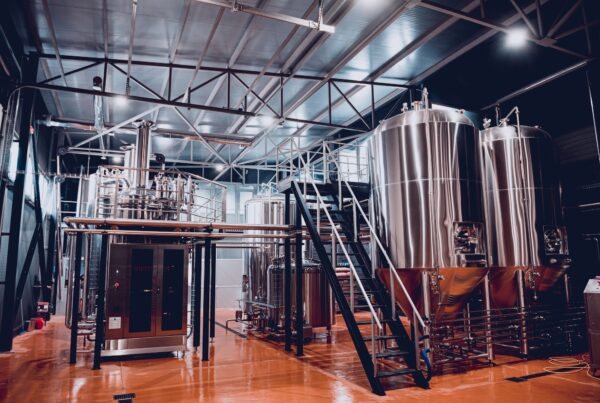Lithium and lithium complex have been the main thickeners used by fat manufacturers for several decades. However, innovative alternatives are increasingly being used today to produce long-lasting, high-performance greases. Mascherpa is always focused on offering the most innovative technologies on the market through its close relationships with partner brands.
What are alternatives to lithium and what advantages can they offer for automotive and industrial applications?
A closer look at fat thickeners
First, it is important to understand the role of the thickener in a fat and its impact on the performance of the final product.
When making a fat, the thickener is the key ingredient that transforms the oil into a finished fat. The thickener gives the fats their unique flow properties, allowing them to stay in place while retaining the ability to be pumped.
Different thickeners can also affect the high-temperature properties, water resistance, mechanical stability and oxidation resistance of a fat. These are all crucial factors that affect the suitability of the finished grease for use in certain applications, such as under prolonged working conditions or in humid or hot environments.

The traditional fat thickener
Although lithium and lithium complex thickeners have historically been used, there is now a range of fat thickeners that can produce competitive finished fats. Why did the industry rely on lithium thickeners?
Lithium and lithium complex fats account for 69 percent of the global fat market (source: Petro-Canada). Historically cheaper and more readily available, these thickeners have offered ease of production and good overall performance over time.
Lithium greases have improved performance at high temperatures compared with their calcium predecessors. They also benefit from good stability and water resistance and, with additional additives, can also offer extreme pressure, anti-wear, anti-corrosion and anti-rust capabilities.
Recently, supply chain problems and demand for raw materials from other sectors have significantly changed the market for fats. This has led to an increase in the use of alternative thickeners in today’s fats.
The innovative alternatives to fat thickeners
Calcium sulfonate complex greases are formulated with a thickener that provides inherent performance at extreme pressures and wear, which means no additional additives are needed to achieve a high-performance grease. The thickener also offers excellent performance in the presence of water due to its ability to absorb a significant amount of moisture, minimizing the impact on lubrication.
Calcium sulfonate complex fats have high-temperature performance equivalent to the best lithium complex fats: they offer excellent shear stability and can be formulated to perform almost any role.
Polyurea-based thickening fats are another modern alternative. They boast a lifespan typically 3-5 times longer than that of lithium and good performance at high temperatures because the polyurea thickener does not contain metallic ingredients. They also offer a wide range of high-performance qualities, including the ability to provide vital protection and exceptional rust and corrosion protection, as well as thermal and oxidation stability.
However, polyurea fats may be more difficult to incorporate into additives and may be incompatible with other types of thickeners (or other polyurea fats). These challenges can be overcome, especially when fats are formulated by experts to provide superior protection for specific applications.
Aluminum complex greases offer excellent performance over a wide temperature range, with high-temperature performance similar to that of lithium complex greases and good low-temperature performance. The thickener is also reversible, that is, it will reform after short excursions above its melting point. Aluminum complex greases also offer good water resistance and can be formulated to meet NSF H1 regulations for use in incidental food contact applications.
What is the best fat thickener for various applications?
Each thickener has unique properties, which means that not all thickeners and the resulting finished fats are suitable for all applications and environments.
For example, for low-temperature applications, calcium sulfonate-based fats may not be as effective because of the need for a higher thickener content to achieve a specific consistency. In contrast, aluminum complex thickeners are suitable for low-temperature use, while polyurea-based greases may be chosen over lithium or calcium sulfonate greases for high-temperature or long-lasting applications because of their greater oxidation stability.
The place of fat use should also be taken into account. For example, calcium sulfonate and aluminum complex fat thickeners can be used to formulate fats suitable for incidental food contact for use in food production applications. Aluminum complex greases are suitable for use in off-road applications such as heavy mining equipment, including open gear greases.
However, it is important to know that with good formulation and additive systems, fats can be designed for multiple applications. A good example is the PEERLESS™ LLG thickened with calcium sulfonate. It is a multipurpose grease that offers excellent performance and the ability to reduce operating costs in high temperature or wet conditions.
What thickeners are used in Petro-Canada Lubricants?
To provide high-performance greases for a wide range of applications, Petro-Canada Lubricants uses several grease thickeners, including lithium and lithium complex, calcium sulfonate complex, polyurea, and aluminum complex.
This enables the formulation of products that offer superior protection and lubrication in a wide range of operating environments. Taking advantage of the properties of each thickener, where appropriate, fats
Petro-Canada Lubricants
can help reduce the total cost of ownership.
When choosing a fat or thickener, it is important to look for relevant industry certifications. For example, PEERLESS™ LLG, OG1, OG2, and OG2 Red meet the National Lubricating Grease Institute’s (NLGI) GC-LB certification (the internationally recognized standard grease specification for grease and bearing manufacturers), while PEERLESS™ OG2 Red and LLG have also achieved the NLGI’s new High-Performance Multiuse (HPM) Core grease certification.
PEERLESS™ LLG and PEERLESS™ OG2 Red greases are calcium sulfonate complex greases suitable for a wide range of applications, particularly under high temperature and extreme humidity conditions. PEERLESS™ greases are recommended for a variety of industrial and automotive applications.
The brand’s polyurea fats, such as PEERLESS™ POLY EMB, are best suited for long-life and high-temperature services, particularly for electric motor bearings and “fill for life” applications, while aluminum complex greases VULTREX™ of Petro-Canada Lubricants are widely used for resource extraction equipment, such as mining trucks and shovels used in surface mining.
What is the future of fat thickeners?
The market for fat thickeners is constantly evolving. With grease manufacturers increasingly seeking alternatives to lithium, the use of calcium sulfonate, polyurea, aluminum complex, and others is expected to increase, diversifying grease options for customers to provide even greater performance for Meet the lubrication needs of the automotive and industrial sectors.



